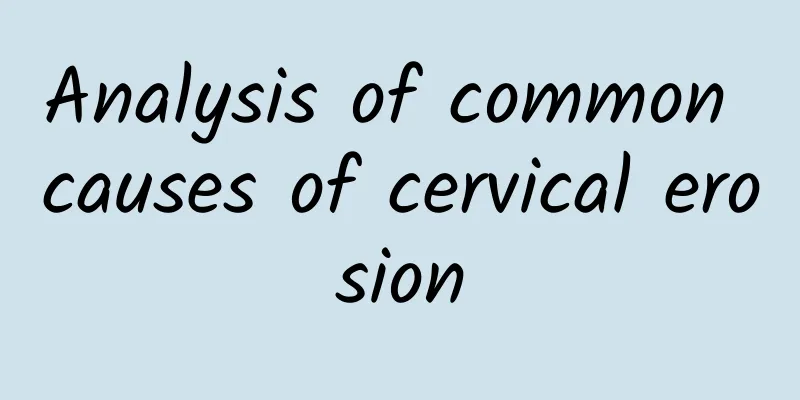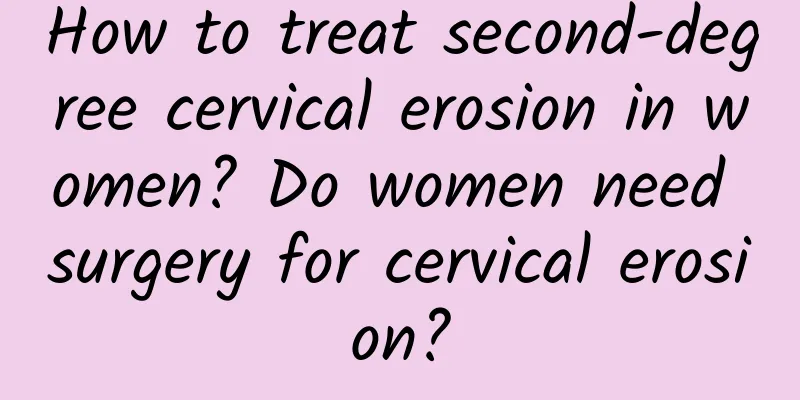Can I get pregnant naturally with pelvic inflammatory disease?

|
Pelvic inflammatory disease and adnexitis may reduce the chance of natural pregnancy, but it is not completely impossible to get pregnant. This depends on factors such as the severity of the inflammation, whether the treatment is timely and effective, and whether the pelvic cavity and fallopian tubes are irreversibly damaged. In these cases, standardized treatment and improved lifestyle can increase the possibility of pregnancy. 1. Causes of infertility caused by pelvic inflammatory disease and adnexitis Pelvic inflammatory disease and adnexitis refer to infectious inflammation of the female reproductive organs, which are often caused by bacterial infections, especially reproductive tract infections (such as chlamydia, gonococci, etc.) that spread to the pelvic cavity and adnexal areas when not treated in time. Inflammation may damage the fallopian tubes, causing blockage or obstruction of the fallopian tubes, and the inability of sperm and eggs to combine. In severe cases, pelvic adhesions or hydrosalpinx may form, further reducing the chance of pregnancy. In addition, long-term inflammation may affect ovarian function and reduce egg quality. 2. How can standardized treatment improve the possibility of conception? Timely treatment can restore normal function of the reproductive system and increase the possibility of pregnancy. Common treatments include: (1) Drug treatment: Antibiotics are the first choice for the treatment of pelvic inflammatory disease and adnexitis. For example, the combination of ceftriaxone, metronidazole and azithromycin has a good effect. The doctor will select the appropriate antibiotic according to the source of infection and recommend that the patient take the medication in sufficient doses and for a sufficient course of treatment. (2) Physical therapy: In the chronic pelvic inflammatory disease stage, physical therapy such as shortwave therapy, microwave therapy or traditional Chinese medicine acupuncture can also help promote blood circulation and eliminate inflammation. (3) Surgical treatment: For those with severe fallopian tube obstruction or hydrops, laparoscopic surgery can be used to open the fallopian tube or remove the lesion to restore the smoothness of the reproductive system. Care should be taken to avoid secondary infection after surgery. 3. Preventive measures and pregnancy preparation To increase your chances of conceiving naturally during your recovery period after treatment, you should do the following: (1) Avoid reinfection: Pay attention to sexual hygiene, avoid high-risk sexual behaviors, and have regular gynecological examinations to detect and treat reproductive tract infections as early as possible. (2) Physical conditioning: You can enhance your immunity through a proper diet and exercise. Take more high-quality protein such as fish and soy products, and supplement with folic acid and other nutrients that are beneficial to the female reproductive system. (3) Try assisted reproductive technology: If natural conception has been attempted for more than one year without success, you can consult a doctor for assisted reproduction (such as artificial insemination, in vitro fertilization), etc. There are many factors that affect the condition, and whether pelvic inflammatory disease and adnexitis will cause infertility varies from person to person. It is recommended to receive scientific treatment as soon as possible after diagnosis, restore reproductive function, and plan pregnancy under the guidance of a doctor to increase the chance of success. A comprehensive examination before pregnancy is also very important to reduce the risks caused by unrecovered diseases. |
<<: Can I get pregnant with functional uterine bleeding?
>>: I had a miscarriage. What can I eat to get rid of the blood?
Recommend
Are the symptoms of uterine fibroids obvious?
In today's society, there are more and more d...
What are the specific symptoms of adnexitis?
Adnexitis is common in life. Most women suffer fr...
What foods should I eat for irregular menstruation
Patients with irregular menstruation can eat food...
Can ovarian problems cause menstrual irregularities in women?
Many experts have said that irregular menstruatio...
Abdominal pain is the main symptom of ectopic pregnancy when tubal pregnancy is disrupted
The fertilized egg is affected by certain factors...
These diseases are also the cause of cervical hypertrophy
The cause of cervical hypertrophy is a topic of g...
What is the reason for long-term menstruation before menopause?
Long-term menstrual irregularities before menopau...
Drinking tea is also effective in losing weight and burning fat! Black tea vs. green tea, guess who is the fat burning king!
Exercise is the best way to lose weight, but mode...
What is a benign ovarian cyst?
What is a benign ovarian cyst? Which groups of pe...
My period came on November 5th but didn't come on December 5th
If your period that started on November 5th has n...
How to relieve amenorrhea
How to relieve the feeling of amenorrhea? Ways to...
3D perspective fat target accurate fat removal without pain or wounds
Body Slimming Arena 2012 New Medical Technology, ...
Male sexual function declines, unable to "take up arms and go into battle"? Nutritionist: 4 must-eats to prevent fatigue in your little brother
The decline of male sexual function may lead to t...
Is it right to choose high-fiber bread for breakfast? Nutritionist reveals: Why is salty bread better than sweet bread?
Breakfast is the most important meal of the day. ...
What are the symptoms of chronic pelvic floor disease?
Chronic pelvic inflammatory disease is a common d...









